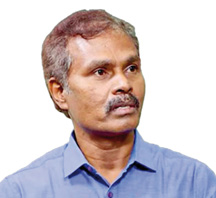
PROF. JAWAHAR NESAN
Distinguished Engineering Educator and Policy Thought Leader
Dr. Lenin Jawahar Nesan is a prominent figure in Tamil Nadu’s educational landscape, whose visionary leadership and academic contributions have significantly influenced policy discussions and institutional reforms across India and beyond. With a distinguished career in engineering education, he has served as the Vice-Chancellor of both Saveetha University and JSS Science and Technology University, playing a vital role in advancing higher education standards.
An accomplished scholar, Dr. Nesan was a research grantee of the International Radiation Protection Association, Malaysia, in 2000 and has been a Fellow at the Institute of Advanced Technology, Serdang, since 1999. His dedication to academic excellence is reflected in his founding of the Educated Chamber in Sirkali, India (1999), and in Serdang, Malaysia (2000), both initiatives aimed at fostering educational innovation and collaboration.
Dr. Nesan is also a member of the American Society of Civil Engineers and has been recognized as a noteworthy engineering educator by Marquis Who’s Who. His expertise bridges technical knowledge with institutional leadership, making him a respected voice in engineering education and a catalyst for forward-thinking reform in the academic sector.
As India stands at a critical juncture in education reform, questions surrounding privatization, affordability, and equity have become central to the national discourse. The National Education Policy (NEP) 2020 has reignited debates on the role of the state in ensuring inclusive and accessible education, with Tamil Nadu emerging as a unique case study. Known for its welfare-driven approach and high gross enrollment ratios, the state’s education policy contrasts sharply with the central push towards privatization and market-based mechanisms. This G’nY blog features an insightful conversation with educationist, Dr. Lenin Jawahar Nesan. Through this discussion, we explore the foundational principles of Tamil Nadu’s education model, the ideological and structural tensions with the National Education Policy 2020, and the broader implications for equity, federalism, and the future of public education in India.
Read more
